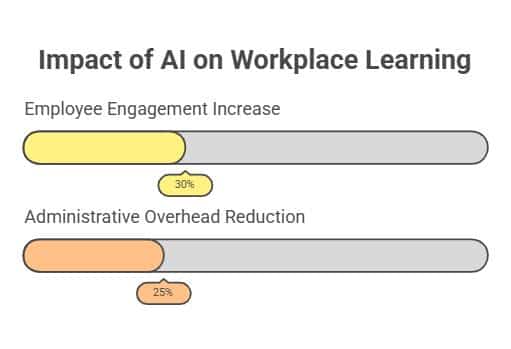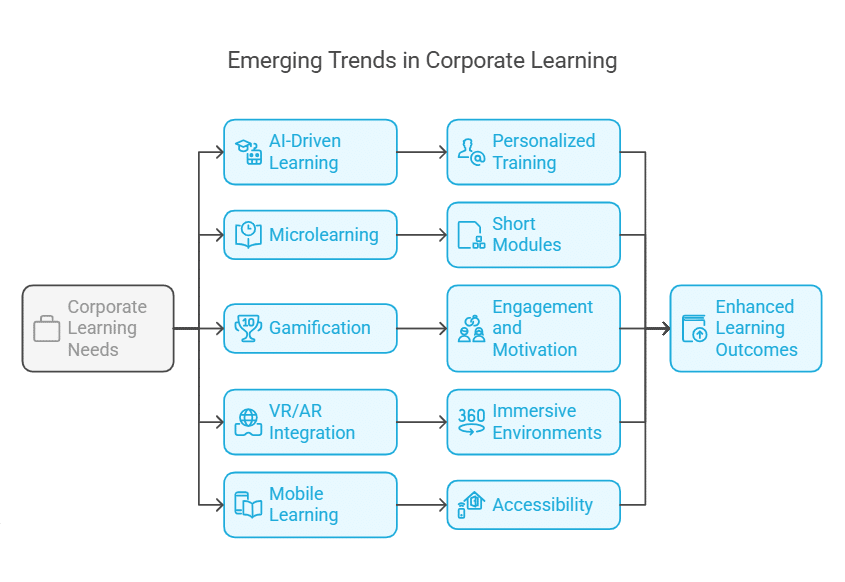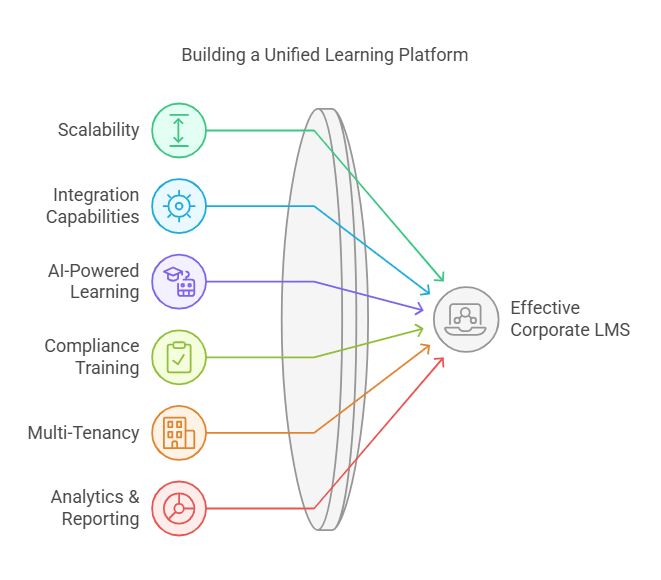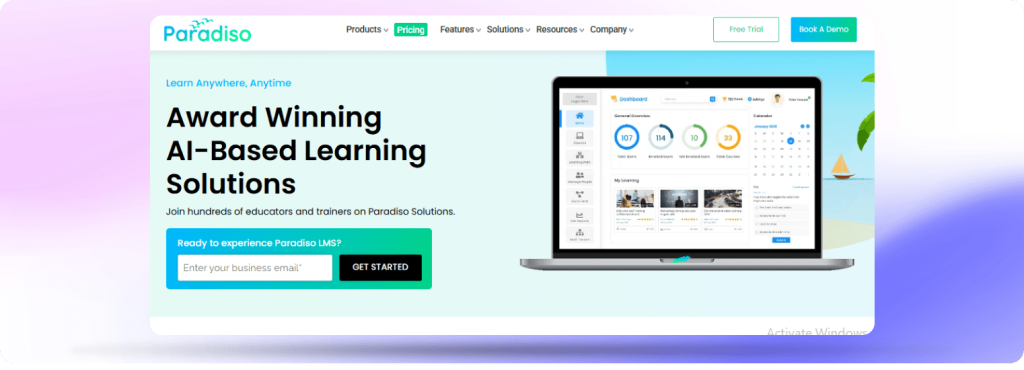THANK YOU
FOR YOUR INFORMATION
X


Try Paradiso LMS for free?
Discover the features of world’s most flexible and easy to use AI-Powered LMS







Docebo leverages artificial intelligence to create personalized learning experiences, automating course management and workflow integrations. Key features include intuitive course creation, social learning tools, and robust performance analytics. With flexible pricing plans designed for mid-sized to large enterprises, Docebo is ideal for companies seeking a dynamic, scalable LMS that adapts to evolving training needs.
Engage with vendors to schedule demos or trial periods for the shortlisted platforms. During this phase, involve key stakeholders—such as HR, IT, and training managers—to test usability, assess integration compatibility, and evaluate support responsiveness. Collect feedback on the platform’s performance, ease of implementation, and overall satisfaction with its features, particularly those that impact compliance and personalization.
Many experts recommend platforms like Absorb LMS, SAP Litmos, and SuccessFactors. These systems feature automated tracking, robust reporting, and dedicated compliance modules to ensure employees stay up-to-date with industry regulations, making them ideal for sectors with strict compliance needs.
Start by defining your organization’s training goals and unique requirements. Evaluate factors such as scalability, user experience, integration capabilities (with HRMS, CRM, etc.), pricing models, and vendor support. Request demos or trials and gather feedback from key stakeholders before making your final decision.
AI-powered LMS platforms deliver personalized learning paths that adapt to individual progress. They streamline administrative tasks by automating tracking and reporting, while AI tutors and chatbots provide on-demand support and real-time feedback—enhancing engagement, learning outcomes, and overall efficiency.
Platforms like Moodle Workplace, Totara Learn, and LearnUpon are well-regarded for multi-tenancy. They allow organizations to manage separate departments or subsidiaries under one system, with segmented user groups and customized content that maintains centralized control.
Look at options such as Workday Learning, SuccessFactors, Docebo, and Cornerstone OnDemand. These platforms offer robust API capabilities and pre-built connectors that ensure smooth data exchange with your existing HR and CRM systems, enhancing workflow efficiency.
Platforms such as EdApp, SAP Litmos, and Docebo are known for their mobile learning features. They offer responsive designs and native mobile apps that provide offline access, push notifications, and adaptive interfaces for a seamless learning experience on any device.
Create your FREE LMS now!
Paradiso E-Learning Resources

We use cookies and related technologies necessary to make our websites work, to offer you a better browsing experience, analyse our website traffic, personalize content and enable social media functionality. Please view our privacy policy to learn more Read More
| Name | Domain | Purpose | Expiry | Type |
|---|---|---|---|---|
| PHPSESSID | www.paradisosolutions.com | PHP generic session cookie. | 55 years | HTTP |
| wpl_user_preference | www.paradisosolutions.com | WP GDPR Cookie Consent Preferences. | 1 year | HTTP |
| YSC | youtube.com | YouTube session cookie. | 55 years | HTTP |
| Name | Domain | Purpose | Expiry | Type |
|---|---|---|---|---|
| _fbp | paradisosolutions.com | Facebook Pixel advertising first-party cookie | 3 months | HTTP |
| __adroll | d.adroll.com | AdRoll advertising cookie. | 1 year | HTTP |
| __adroll_fpc | paradisosolutions.com | AdRoll advertising cookie. | 1 year | HTTP |
| __ar_v4 | www.paradisosolutions.com | AdRoll advertising cookie. | 1 year | HTTP |
| VISITOR_INFO1_LIVE | youtube.com | YouTube cookie. | 6 months | HTTP |
| Name | Domain | Purpose | Expiry | Type |
|---|---|---|---|---|
| IDE | doubleclick.net | Google advertising cookie used for user tracking and ad targeting purposes. | 2 years | HTTP |
| _ga | paradisosolutions.com | Google Universal Analytics long-time unique user tracking identifier. | 2 years | HTTP |
| _uetsid | paradisosolutions.com | Microsoft Bing Ads Universal Event Tracking (UET) tracking cookie. | 1 days | HTTP |
| MUID | bing.com | Microsoft User Identifier tracking cookie used by Bing Ads. | 1 year | HTTP |
| MR | bat.bing.com | Microsoft User Identifier tracking cookie used by Bing Ads. | 7 days | HTTP |
| Name | Domain | Purpose | Expiry | Type |
|---|---|---|---|---|
| __cf_bm | hsadspixel.net | Generic CloudFlare functional cookie. | Session | HTTP |
| NID | google.com | Google unique id for preferences. | 6 months | HTTP |
| Name | Domain | Purpose | Expiry | Type |
|---|---|---|---|---|
| _gcl_au | paradisosolutions.com | --- | 3 months | --- |
| CLID | www.clarity.ms | --- | 1 year | --- |
| initialTrafficSource | paradisosolutions.com | --- | 2 years | --- |
| __utmzzses | paradisosolutions.com | --- | 55 years | --- |
| gaconnector_all_traffic_sources | paradisosolutions.com | --- | 6 months | --- |
| gaconnector_fc_timestamp | paradisosolutions.com | --- | 6 months | --- |
| gaconnector_lc_timestamp | paradisosolutions.com | --- | 6 months | --- |
| gaconnector_gclid | paradisosolutions.com | --- | 6 months | --- |
| _clck | paradisosolutions.com | --- | 1 year | --- |
| gaconnector_GA_Measurement_ID | paradisosolutions.com | --- | 6 months | --- |
| gaconnector_GA_Client_ID | paradisosolutions.com | --- | 6 months | --- |
| _lfa | paradisosolutions.com | --- | 1 year | --- |
| bcookie | linkedin.com | --- | 1 year | --- |
| lidc | linkedin.com | --- | 1 days | --- |
| gaconnector_GA_Session_ID | paradisosolutions.com | --- | 6 months | --- |
| _clsk | paradisosolutions.com | --- | 1 days | --- |
| source | www.paradisosolutions.com | --- | 3 years | --- |
| gaconnector_pages_visited_list | paradisosolutions.com | --- | 6 months | --- |
| _rdt_uuid | paradisosolutions.com | --- | 3 months | --- |
| _rdt_em | paradisosolutions.com | --- | 3 months | --- |
| exitpopup_halfminute | www.paradisosolutions.com | --- | 7 days | --- |
| exitpopupcook | www.paradisosolutions.com | --- | 7 days | --- |
| gaconnector_page_visits | paradisosolutions.com | --- | 6 months | --- |
| _ga_2YGBCTZ7RX | paradisosolutions.com | --- | 2 years | --- |
| ct_ps_timestamp | www.paradisosolutions.com | --- | 55 years | --- |
| ct_fkp_timestamp | www.paradisosolutions.com | --- | 55 years | --- |
| ct_timezone | www.paradisosolutions.com | --- | 55 years | --- |
| ct_screen_info | www.paradisosolutions.com | --- | 55 years | --- |
| apbct_headless | www.paradisosolutions.com | --- | 55 years | --- |
| ct_checked_emails | www.paradisosolutions.com | --- | 55 years | --- |
| ct_checked_emails_exist | www.paradisosolutions.com | --- | 55 years | --- |
| ct_checkjs | www.paradisosolutions.com | --- | 55 years | --- |
| _uetvid | paradisosolutions.com | --- | 1 year | --- |
| apbct_timestamp | www.paradisosolutions.com | --- | 55 years | --- |
| apbct_site_landing_ts | www.paradisosolutions.com | --- | 55 years | --- |
| apbct_prev_referer | www.paradisosolutions.com | --- | 55 years | --- |
| apbct_page_hits | www.paradisosolutions.com | --- | 55 years | --- |
| apbct_cookies_test | www.paradisosolutions.com | --- | 55 years | --- |
| ct_pointer_data | www.paradisosolutions.com | --- | 55 years | --- |
| receive-cookie-deprecation | d.adroll.com | --- | 1 year | --- |
| __adroll_shared | adroll.com | --- | 1 year | --- |
| gaconnector_time_passed | paradisosolutions.com | --- | 6 months | --- |
| apbct_site_referer | www.paradisosolutions.com | --- | 55 years | --- |
| ct_sfw_ip_wl | www.paradisosolutions.com | --- | 1 month | --- |
| ct_sfw_pass_key | www.paradisosolutions.com | --- | 1 month | --- |
| MSPTC | bing.com | --- | 1 year | --- |
| _cfuvid | capterra.com | --- | 55 years | --- |
| VISITOR_PRIVACY_METADATA | youtube.com | --- | 6 months | --- |
| __Secure-ROLLOUT_TOKEN | youtube.com | --- | 6 months | --- |
Don’t just compare features — experience the LMS for yourself.
Start a trial now
Join millions of learners and thousands of organizations!











THANK YOU
FOR YOUR INFORMATION
We’ve sent you an email with an attachment to download the Brochure.
THANK YOU
FOR YOUR INFORMATION
One of our elearning expert will be in touch with you…
THANK YOU
FOR YOUR INFORMATION
One of our experts will be in touch with you…
Leave us your details..
Let’s get LMS Pricing to your Inbox
THANK YOU!
PLEASE CHECK YOUR INBOX
We’ve sent you an email with a link to download the Brochure


CONTACT US
Interested in talking to us? Please fill out the form, and we’ll get back to you shortly!


Partner with us




Booking For Consultation


Let’s talk about your project
THANK YOU!!
Your submission is received.
One of our LMS coaches will contact you as soon as possible!
If you don’t receive a confirmation email within a few minutes, please check your junk mail or spam folder
and make sure to add sa***@pa***************.com to your safe-list for future notifications.
If you don’t want to wait, Call us at +1 800 513 5902
Send your RFP/RFI request
Hi! Would you like to visit our Spanish site?
Visit Spanish Site
Please Register Here for Webinar!

Try Paradiso LMS for free?
Discover the features of world’s most flexible and easy to use AI-Powered LMS


